When you first arrive at Aseeb, the experience begins long before your first bite. Towering doors open onto a palatial, sunlit foyer in Riyadh’s Alyasmin district. It feels grand. But inside, the mood is far from formal. Instead, Aseeb is warm and welcoming, a rare space where architectural drama meets home-cooked soul.
Named Time Out Riyadh’s Best Saudi Restaurant of 2025, Aseeb was founded by husband and wife Abu Saud and Umm Saud as a tribute to the cuisine of Najd, the central heartland of Saudi Arabia. It’s a restaurant rooted in memory, tradition and pride.
The upstairs dining area is expansive yet intimate, with semi-private booths, long family tables, and traditional majlis-style floor seating. Around the room, Najdi murals and antiques like bronze cooking pots, woven baskets, and palm-frond trays evoke a sense of timelessness. Upon arrival, guests are offered a small cup of light Saudi coffee with cardamom and balah (dates), setting the tone with tradition.
A Table Full of Stories

We sampled a wide variety of dishes, each thoughtfully prepared and beautifully plated. The lentil soup (SAR 33) was earthy and comforting, with a smooth texture that warmed the palate. The sambosa with camel meat (SAR 49) was juicy, perfectly spiced, and wrapped in an ultra-crispy pastry. It was one of the best sambosas we’ve had, made even better by the tomato-based daqqus served on the side.
The stuffed vine leaves (SAR 39) offered a vibrant, tangy punch and a satisfying texture. The cucumber, tomato, and onion salad (SAR 36) was crisp and refreshing, balancing the warmth and richness of the other dishes.
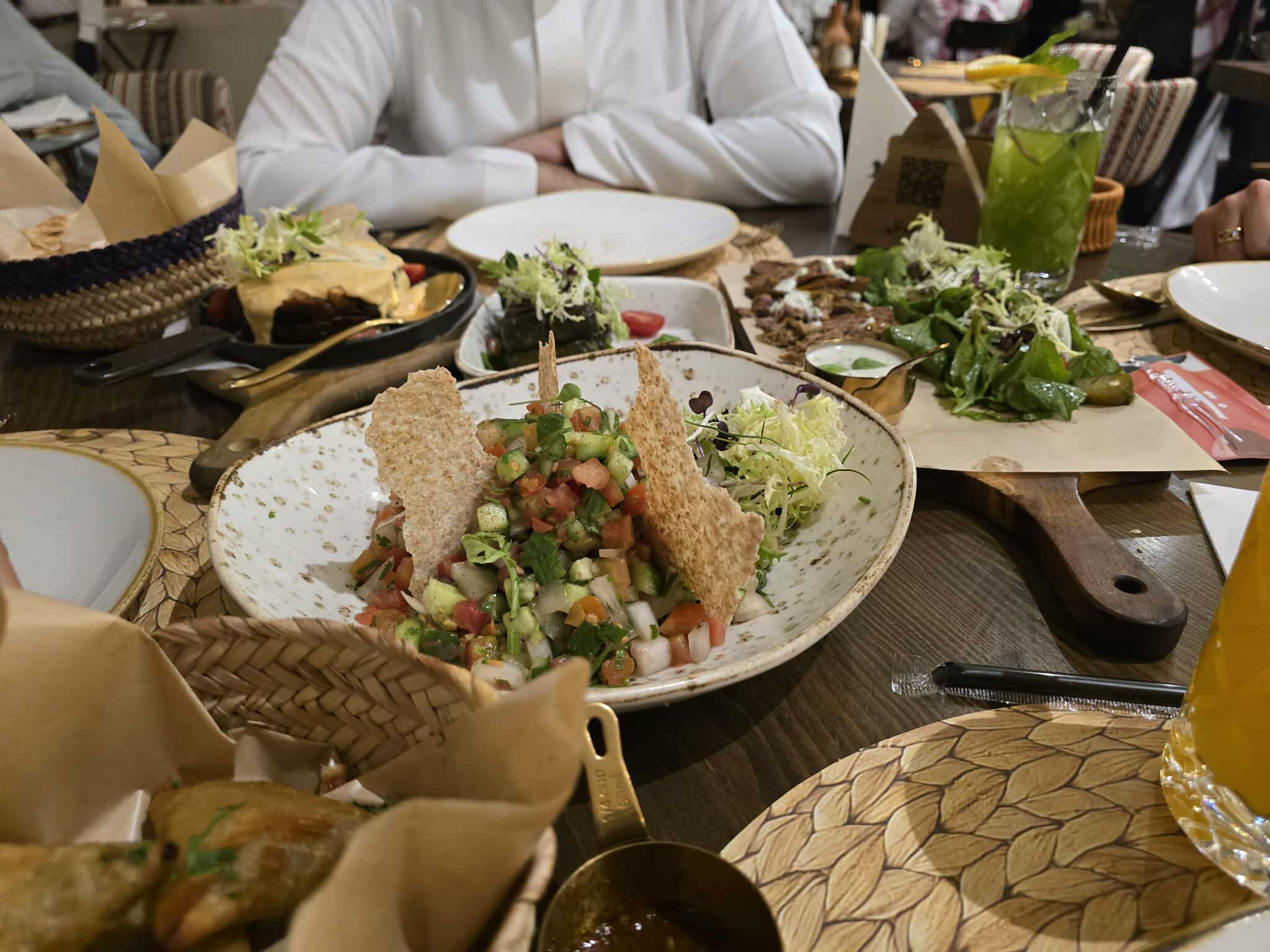
The Al Azema rice with lamb (SAR 159) arrived as a generous platter of fragrant rice topped with slow-cooked local lamb, fried onions, and roasted nuts. It was rich, hearty, and deeply satisfying. The meat habara (SAR 139), tender slices of lamb served with a creamy yoghurt sauce, lemon, and pepper, was subtle and full of depth.

The Al-Mousaqqa (SAR 69) was a standout. This layered dish of eggplant, meat, and vegetables in a spiced tomato sauce had beautifully balanced textures and slow-cooked flavor. Molokhia (SAR 39), rich and herbal, brought a silky contrast to the mix. For dessert, we finished with loqmet (SAR 39), golden dough balls that were crisp on the outside and syrupy on the inside. Throughout the meal, the lemon mint juice provided a refreshing and zesty counterpoint.
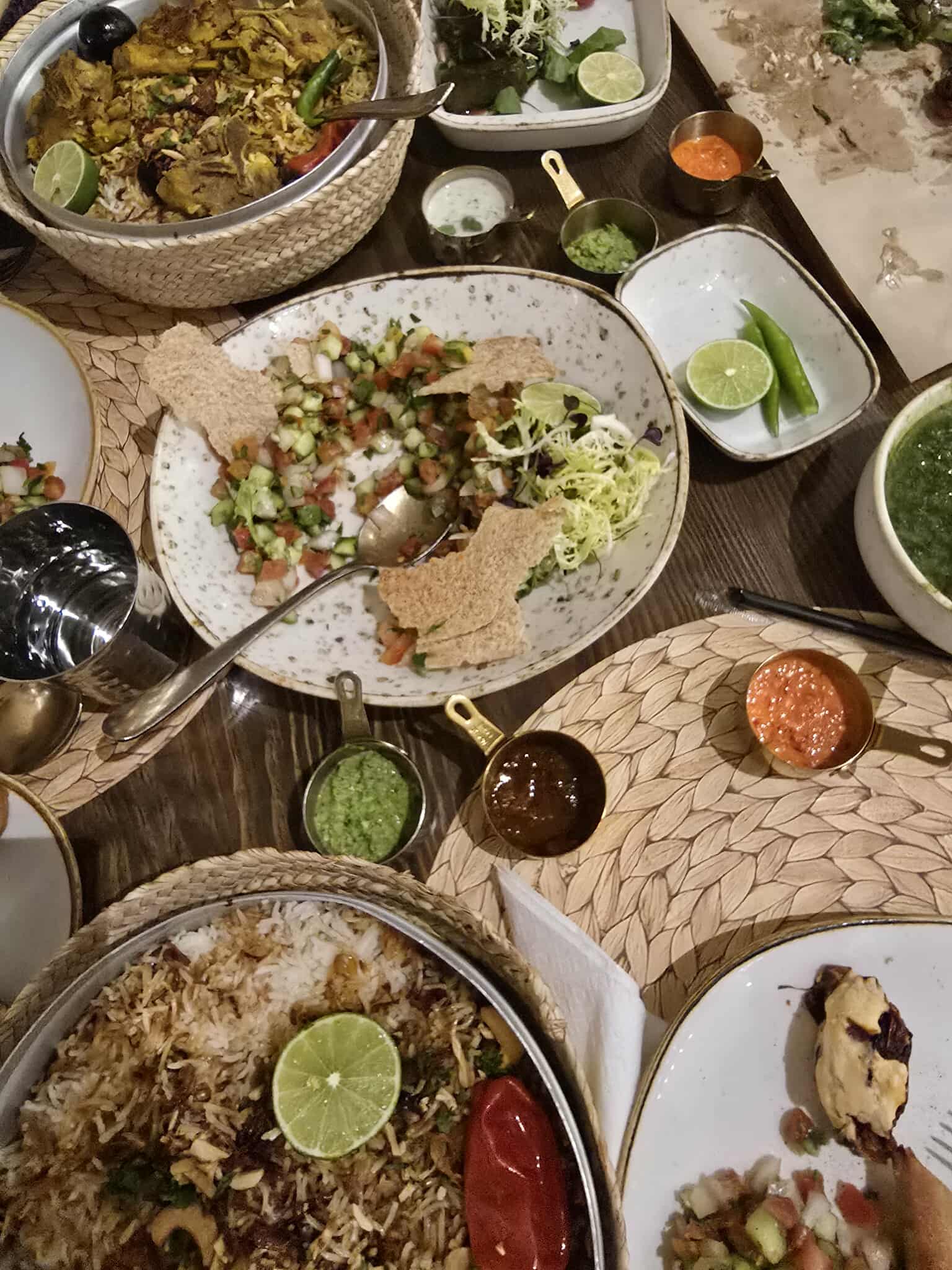
One thing worth noting is that the food came out as it was ready, rather than in a traditional appetizer-then-main-course sequence. Within minutes, our table was full. For those who are particular about pacing, it might be helpful to let the waiter know in advance. That said, this rhythm of dining mirrors the style of a Middle Eastern sofra, where everything is placed on the table and you fill your plate with a bit of everything, enjoying it all at once.
The portion sizes were generous and ideal for sharing, making the experience feel communal, just as Saudi cuisine is meant to be.
From Farm to Palm-Frond Grill
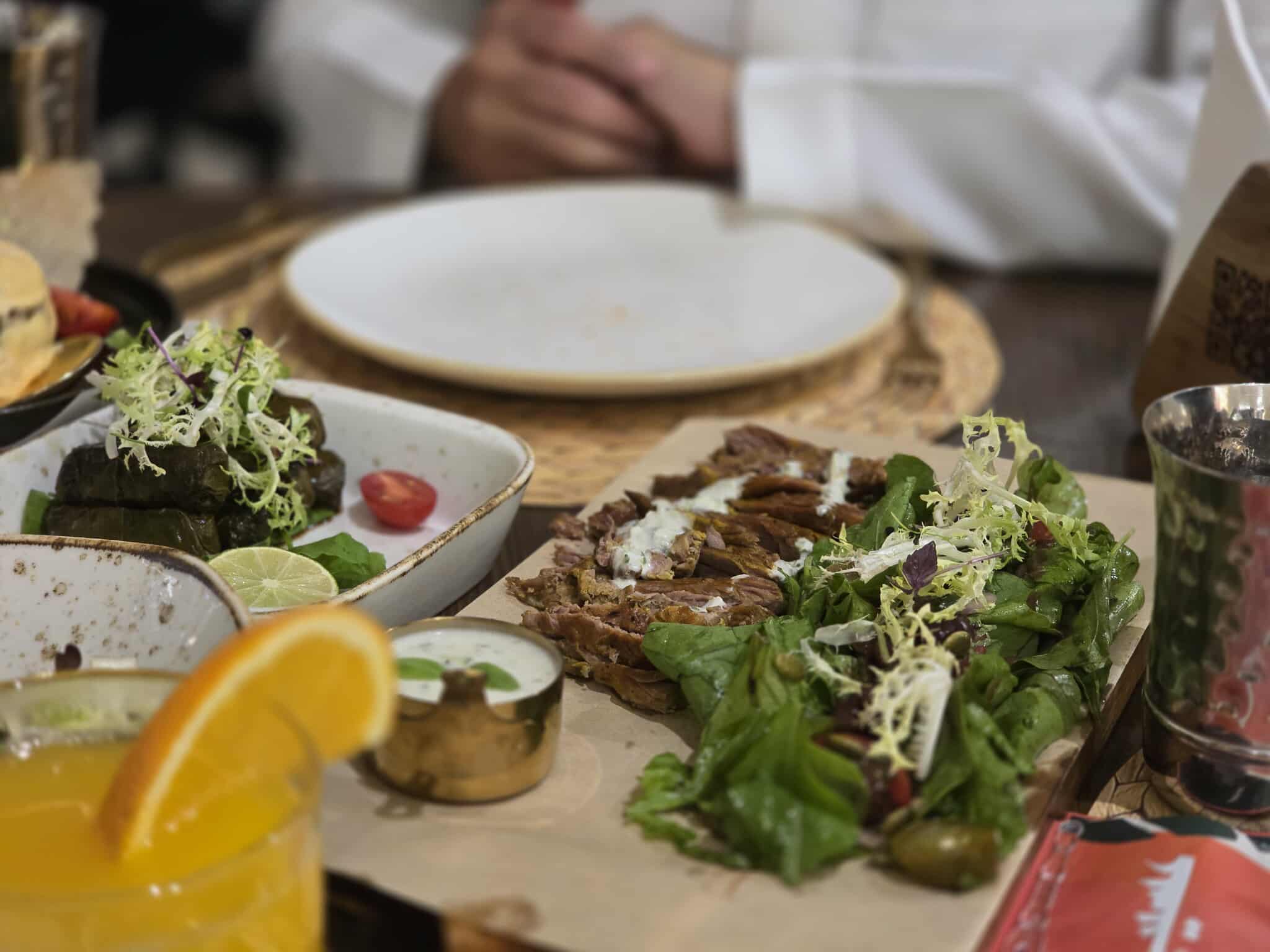
What sets Aseeb apart is its sourcing and technique. Many of the meats and ingredients are grown on the restaurant’s own farm. The lamb, in particular, is grilled over palm leaves, lending it a distinctive aroma that is both rustic and refined.
The menu doesn’t just celebrate Najd. It also nods to other Saudi regions, with dishes like saleeg, molokhia, and camel meat kebbeh, each filtered through a Najdi lens. But the heart of the experience remains firmly in Najd, with less-common dishes like red jareesh (crushed wheat cooked with chicken and milk, then topped with fried onions) and milk marasee (a hearty blend of wheat, onions, and hot milk).

Final thoughts
The attention to detail is everywhere. From the antique decor to the family-driven hospitality, Aseeb doesn’t just serve food. It tells a story. The team behind it has created an experience that is both nostalgic and elevated. Even the architecture plays a role, with design elements that echo traditional Najdi homes.
Despite its grandeur, Aseeb doesn’t feel exclusive or pretentious. It’s where locals bring family, friends, and visitors to share a slice of their heritage over plates that feel both old and new. It is an ode to Najdi identity and Saudi culinary tradition. The service is warm, the dishes are soulful, and the setting is both impressive and inviting. Whether you’re a seasoned lover of Saudi cuisine or trying it for the first time, Aseeb delivers an unforgettable experience.


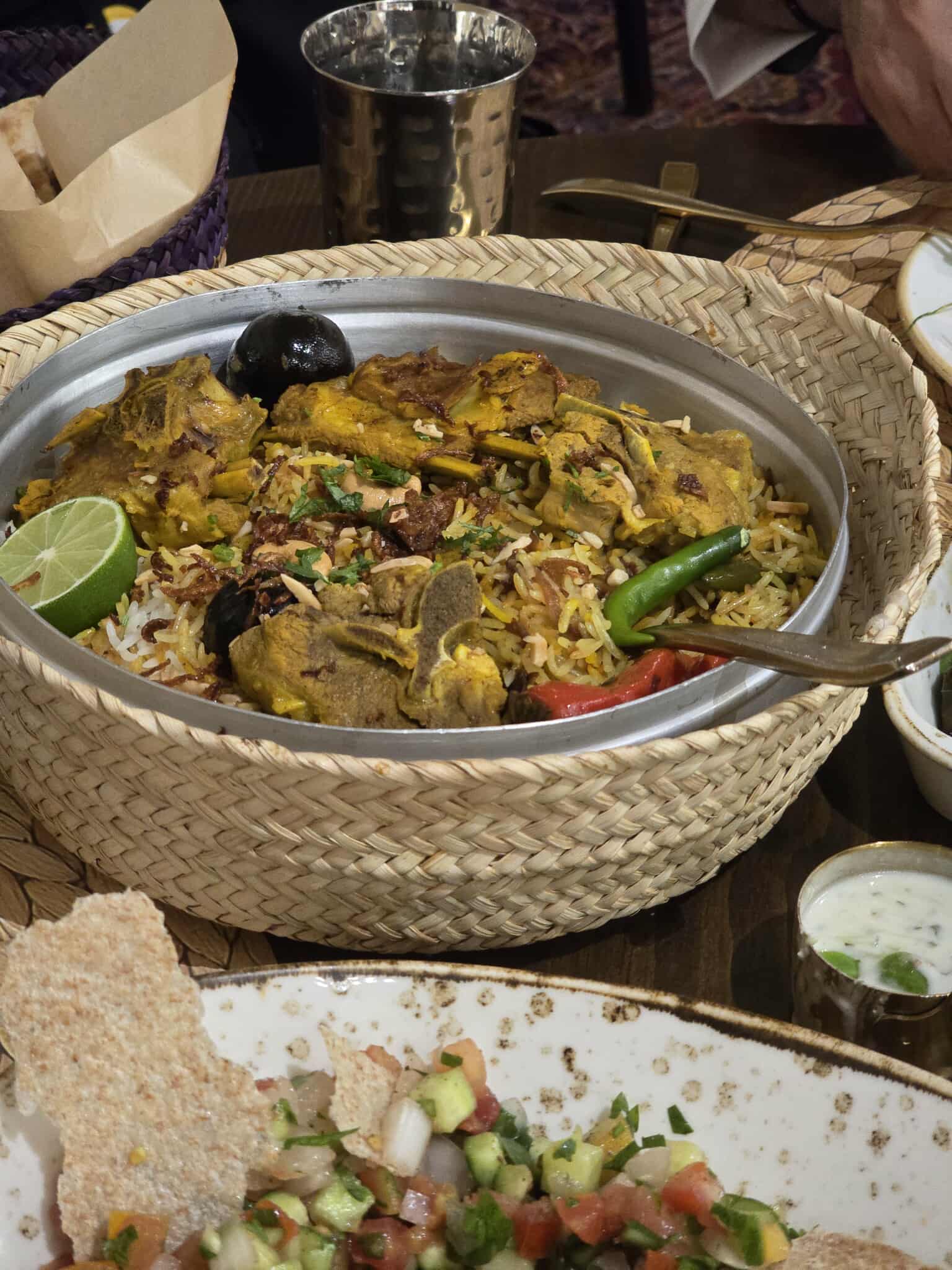



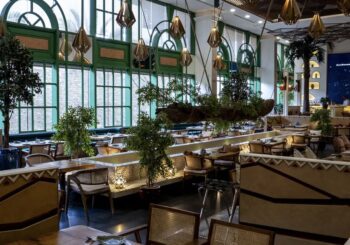

Comments (0)